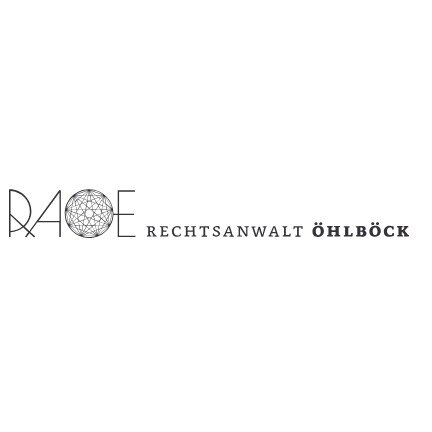Best Native People Lawyers in Austria
Share your needs with us, get contacted by law firms.
Free. Takes 2 min.
Or refine your search by selecting a city:
List of the best lawyers in Austria
About Native People Law in Austria
In Austria, the concept of "Native People" primarily refers to the indigenous communities and ethno-cultural groups who have historically settled in specific regions. While Austria itself does not have a distinct indigenous population akin to those in North America or Australia, there are certain ethnic minorities, such as the Slovene, Hungarian, and Romani communities, that possess a native or longstanding presence in the region. Legal matters concerning these groups may pertain to cultural preservation, linguistic rights, and educational access, among other issues.
Why You May Need a Lawyer
Legal assistance may be crucial for individuals from indigenous or ethnic minority groups in situations such as:
- Navigating employment or housing discrimination cases.
- Accessing multicultural education or preserving cultural rights.
- Addressing issues related to language rights and official documentation.
- Engagement with government and institutional policies that affect community rights.
- Seeking redress for hate crimes or racial profiling incidents.
An experienced lawyer can advocate for your rights, guide you through the legal system, and help ensure equitable treatment.
Local Laws Overview
Austrian law recognizes and protects the rights of its minorities and ethnic groups in various manners, including:
- The Austrian State Treaty of 1955, which guarantees minority rights, particularly for the Slovene and Croat communities.
- The Ethnic Groups Act of 1976, which provides linguistic and cultural rights to recognized minority groups.
- Provisions in the Austrian Constitution that uphold non-discrimination and equality before the law.
These legal frameworks aim to protect the cultural and linguistic identity of native and ethnic communities within Austria.
Frequently Asked Questions
What defines a 'Native Person' in Austria?
In Austria, 'Native Person' generally refers to established ethnic minorities such as the Slovene and Croat communities, rather than indigenous peoples as understood in other countries.
Are there specific laws protecting the languages of ethnic minorities in Austria?
Yes, the Ethnic Groups Act of 1976 ensures the right to use minority languages in official settings and in education for recognized groups.
What rights do Austrian minorities have regarding language education?
Minorities have the right to receive education in their mother tongue and to use their language in local government dealings, especially in regions where they are traditionally present.
How are minority rights protected in Austria?
The Austrian Constitution, together with specific acts like the Ethnic Groups Act, safeguards against discrimination and ensures the preservation of minority culture and language.
Can an Austrian minority group appeal to international bodies for rights violations?
Yes, groups can appeal to international bodies such as the European Court of Human Rights if they believe their rights under international treaties are violated.
Is there a provision for cultural preservation for ethnic minorities in Austria?
Yes, multiple legal provisions support cultural activities and offer financial aid to organizations dedicated to the preservation and celebration of minority cultures.
What legal recourse exists for discrimination against ethnic minorities in Austria?
Individuals can file complaints with local Austrian courts or the Equal Treatment Commission. Legal aid is available for filing such claims.
How can minorities engage with Austrian political processes?
Minorities are encouraged to engage in political processes and can advocate for their interests through minority advisory councils and political representation.
What role do international conventions play in native people's rights in Austria?
International conventions, such as the European Framework Convention for the Protection of National Minorities, play a significant role in shaping local laws protecting minority rights.
How can legal aid be accessed by native people in Austria?
Various organizations provide legal aid, including the Ombudsperson for Equal Treatment, and assistance is available through professional law firms and community organizations.
Additional Resources
Here are some valuable resources and organizations:
- Federal Ministry for Arts, Culture, the Civil Service and Sport: Offers information related to cultural activities and minority support.
- Equal Treatment Commission: Handles discrimination cases and provides legal assistance.
- Advisory Council for Ethnic Groups: Engages in policy-making to ensure the protection of minority rights.
- The European Union Agency for Fundamental Rights: Offers reports and data on minority rights within the EU context.
Next Steps
If you need legal assistance, consider following these steps:
- Identify your specific legal needs regarding your rights under Austrian law.
- Consult with a specialized lawyer or legal service experienced in minority and indigenous rights in Austria.
- Gather all necessary documentation related to your case.
- Reach out to relevant support organizations for guidance and potential financial assistance.
- Prepare written submissions or claims if legal action is required and seek legal representation for formal proceedings.
Engaging professional legal help can be crucial to navigating the legal complexities surrounding native and minority rights in Austria effectively.
Lawzana helps you find the best lawyers and law firms in Austria through a curated and pre-screened list of qualified legal professionals. Our platform offers rankings and detailed profiles of attorneys and law firms, allowing you to compare based on practice areas, including Native People, experience, and client feedback.
Each profile includes a description of the firm's areas of practice, client reviews, team members and partners, year of establishment, spoken languages, office locations, contact information, social media presence, and any published articles or resources. Most firms on our platform speak English and are experienced in both local and international legal matters.
Get a quote from top-rated law firms in Austria — quickly, securely, and without unnecessary hassle.
Disclaimer:
The information provided on this page is for general informational purposes only and does not constitute legal advice. While we strive to ensure the accuracy and relevance of the content, legal information may change over time, and interpretations of the law can vary. You should always consult with a qualified legal professional for advice specific to your situation.
We disclaim all liability for actions taken or not taken based on the content of this page. If you believe any information is incorrect or outdated, please contact us, and we will review and update it where appropriate.
Browse native people law firms by city in Austria
Refine your search by selecting a city.












